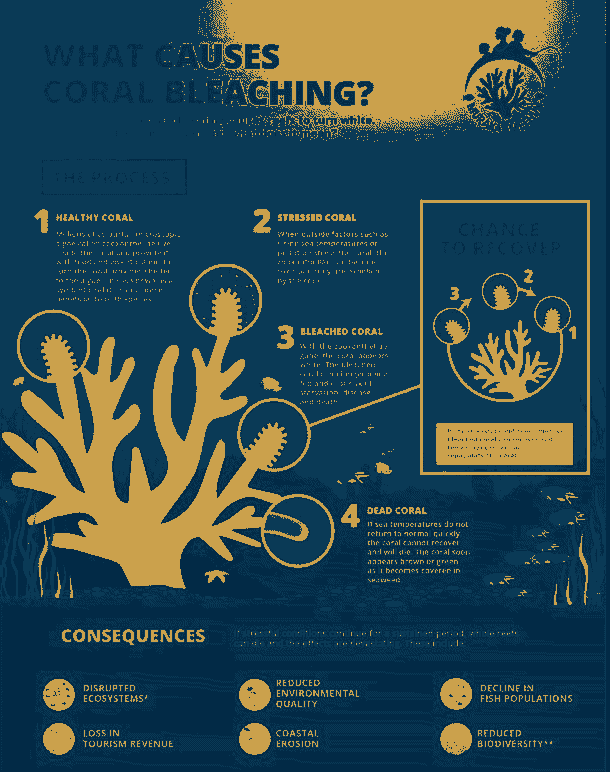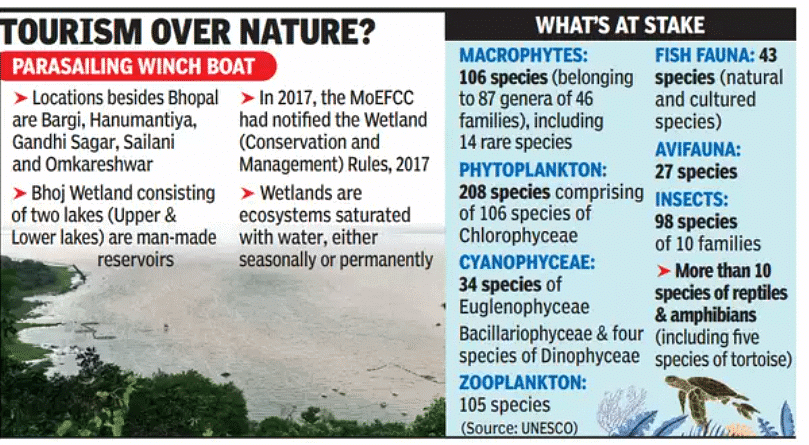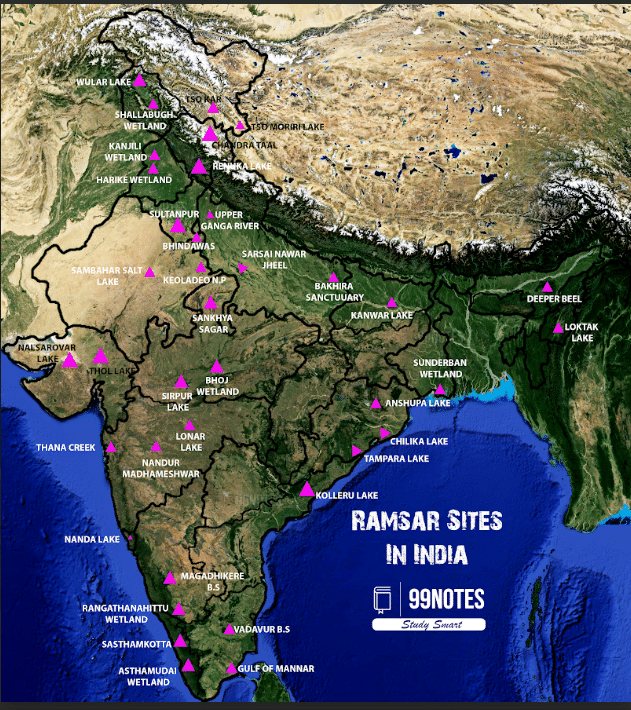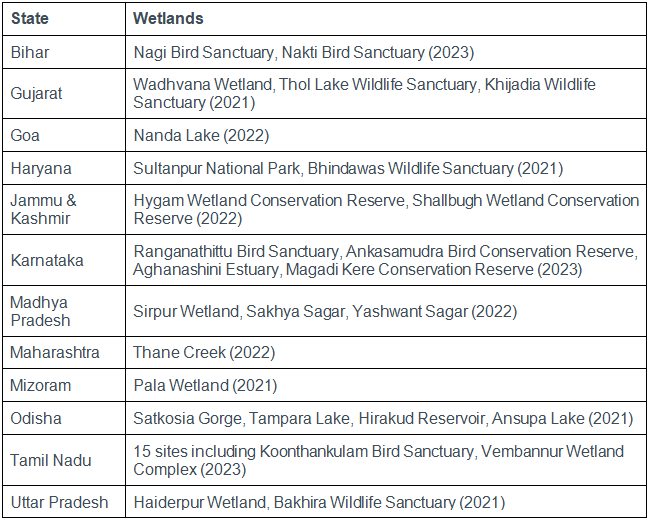PIB Summary- 6th August, 2024 | PIB (Press Information Bureau) Summary - UPSC PDF Download
National Coastal Scheme
Context
The National Coastal Mission Scheme (NCM) addresses coastal ecosystem challenges by funding conservation and research efforts.
It supports state and UT administrations in implementing beach management, pollution control, and capacity-building programs.
This initiative complements broader environmental projects, including the Integrated Coastal Zone Management Project, enhancing India’s coastal resilience.
The National Coastal Mission Scheme (NCM):
- Objective: The National Coastal Mission Scheme (NCM) aims to manage and conserve India’s coastal and marine ecosystems under the National Coastal Management Program.
- Components:
- Mangrove and Coral Reef Conservation: Management Action Plan focusing on the preservation of mangroves and coral reefs.
- Research & Development: Initiatives in marine and coastal ecosystems to advance scientific understanding.
- Beach Development: Sustainable development of beaches, including aesthetic and environmental management services.
- Capacity Building & Outreach: Programs to enhance conservation efforts by coastal states and UTs, including beach cleaning drives.
- Implementing Agencies: Managed by State Governments of Coastal States and Union Territory Administrations.
- Funding: ₹7.94 crore released from 2018-19 to 2023-24 for infrastructure, pollution abatement, safety surveillance, and beach cleaning in Andhra Pradesh.
- Related Projects: The Integrated Coastal Zone Management Project (ICZMP) by MoEFCC has contributed to mapping hazard lines, eco-sensitive areas, and sediment cells along India’s coastline.
Coral Bleaching
Context
Coral bleaching in India, notably in Lakshadweep, highlights the impact of rising sea temperatures and pollution on marine ecosystems.
Recent observations underscore the need for effective conservation strategies, including regulatory measures and restoration projects.
Ongoing research and government initiatives are crucial in mitigating bleaching and protecting coral reefs.

What is Coral Bleaching?
- Definition: Coral bleaching is a phenomenon where corals lose their vibrant colours due to stress factors, primarily elevated sea surface temperatures.
- Visual Effect: Corals turn white or pale as the symbiotic algae (zooxanthellae) living within their tissues are expelled or die.
- Consequences: Prolonged bleaching can lead to coral death, loss of marine biodiversity, and disruption of reef ecosystems.
Factors Responsible for Coral Bleaching
- Global Climate Change: Increase in sea surface temperatures due to global warming is the primary cause.
- Marine Heat Waves: Abnormal rises in sea temperatures over short periods exacerbate bleaching events.
- Pollution: Nutrient runoff, sedimentation, and pollutants can stress coral reefs.
- Overfishing: Depletion of key reef species disrupts ecosystem balance.
- Ocean Acidification: Increased CO2 levels lower ocean pH, affecting coral growth and health.
Status of Coral Bleaching in India
- Recent Government Data: Coral bleaching events were reported in Lakshadweep in March 2024. No significant bleaching was noted in 2023, 2022, 2021, and 2020.
- Regional Observations:
- Lakshadweep: Key area for monitoring and restoration due to significant coral ecosystems.
- Other Regions: Less frequent but potentially impactful events observed in different coastal areas.
Conservation and Management Efforts
Regulatory Measures:
- Indian Wildlife (Protection) Act, 1972: Coral species listed under Schedule-I for the highest level of protection.
- Coastal Regulation Zone (CRZ) Notification, 2019: Focuses on conservation and management of Ecologically Sensitive Areas (ESAs), including corals. Prohibits harmful developmental activities and waste disposal.
Government Initiatives:
- Coral Transplantation: Active coral restoration activities conducted in Lakshadweep.
- Integrated Island Management Plan: Provides protection and management strategies for coral reefs.
Monitoring and Research:
- Zoological Survey of India (ZSI): Monitors coral bleaching through the Long Term Coral Reef Monitoring Program.
- Indian National Centre for Ocean Information Services (INCOIS): Provides bleaching alerts and marine heat wave monitoring since 2011. Conducts coral ecosystem studies in Lakshadweep.
- Central Marine Fisheries Research Institute (CMFRI): Undertakes studies and projects to assess and enhance the resilience of coral reefs.
Ways to Avoid Coral Bleaching
- Reduce Carbon Emissions: Implementing policies and practices to cut greenhouse gas emissions.
- Promote Renewable Energy: Transition to clean energy sources.
- Reduce Runoff: Manage agricultural and industrial waste to minimise nutrient runoff
- Waste Management: Proper disposal and treatment of waste to prevent coastal pollution.
- Regulate Fishing: Enforce sustainable fishing practices and protect key reef species.
Bhoj Wetland
Context
The news highlights ongoing efforts to conserve Bhoj Wetland in Bhopal under the Wetlands (Conservation and Management) Rules, 2017.
It includes central and state-funded projects for wetland management and recent additions to India’s Ramsar sites list, reflecting the country’s commitment to preserving vital aquatic ecosystems.

Bhoj Wetland Status:
- The Madhya Pradesh government has reassured that Bhoj Wetland in Bhopal is currently secure and is not at risk of being removed from the Ramsar Convention’s list of wetlands of international significance. Conservation efforts and regulatory measures continue to protect its status and ecological health.
National Conservation Initiatives:
- National Plan for Conservation of Aquatic Ecosystems (NPCA): Centrally sponsored scheme covering wastewater treatment, shoreline protection, lake development, desilting, stormwater management, and more.
- Activities: Includes bioremediation, biodiversity conservation, education, and community participation.
Ramsar Sites Added (Last Three Years):


Ramsar Convention
- Purpose: The Ramsar Convention aims to conserve wetlands of international importance to ensure their sustainable use and maintain ecological processes and biodiversity.
- Established: Adopted in Ramsar, Iran, in 1971 and came into force in 1975.
- Membership: As of 2023, Ramsar Convention on Wetlands has 172 contracting parties and 2,500 designated sites that cover 257,106,360 hectares (635,323,700 acres).
Key Objectives:
- Protection: Safeguard wetlands and their biodiversity.
- Sustainable Use: Promote wise use of wetland resources for the benefit of people and nature.
- International Cooperation: Enhance global efforts to manage and protect wetlands.
- Implementation: Supported by national policies, site management plans, and international collaboration.
FAQs on PIB Summary- 6th August, 2024 - PIB (Press Information Bureau) Summary - UPSC
| 1. What is the purpose of the National Coastal Scheme? |  |
| 2. What is coral bleaching and why is it a concern? |  |
| 3. What is the significance of the Bhoj Wetland? |  |
| 4. How does coral bleaching impact marine life? |  |
| 5. How will the National Coastal Scheme address the challenges faced by coastal areas in India? |  |
















